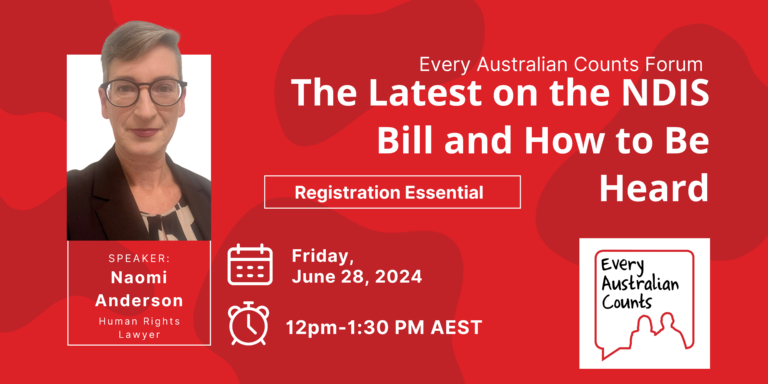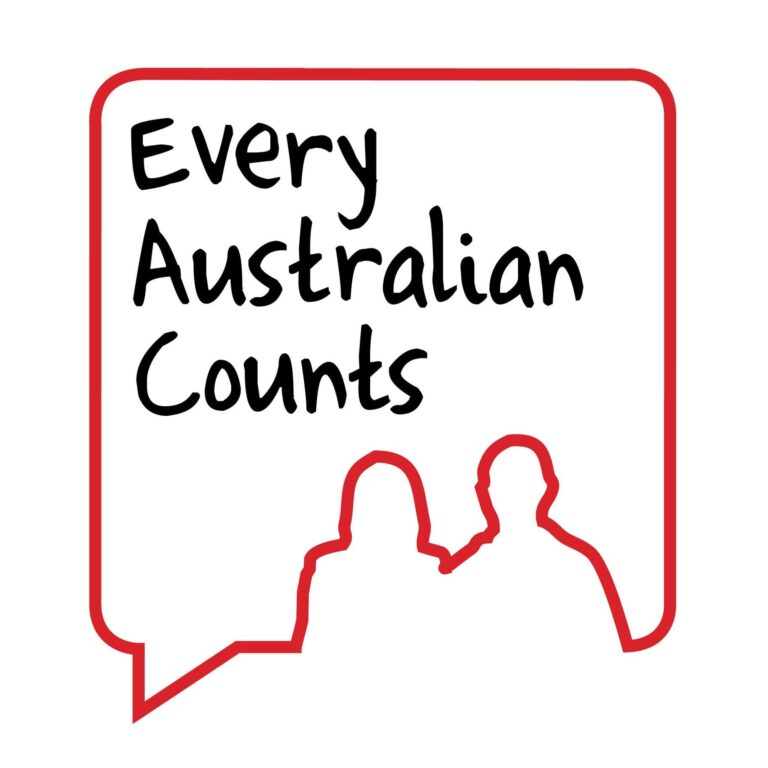We know many of you have questions about the NDIS and AAT appeals processes – as well as any new ideas we might hear from NDIS Minister Bill Shorten and the NDIS.
How will they fix the AAT process for people appealing NDIS decisions? What will it mean for you? What do you want to hear more information about?
There are many questions to be answered, and many ideas to be considered.
To help everyone make sense of it all, we’re collecting your most Frequently Asked Questions and working with the NDIA and NDIS Minister to get you the answers.
Use the form on the side of this page to ask your questions – we’ll send them over to the right people and get you the answers as soon as we can.
We’ll keep updating this page over time, so if you’ve submitted a question but it’s not on this page yet check back again later. We’re doing our very best to get you clear and understandable answers as quickly as we can!
FAQs
➕ Hints ➕
- You can see the answers (or hide them again) by clicking on the questions or the red plus buttons below.
- You can rewatch the live forum again, or read the entire transcript over on this page.
Transcript
Bob
My first question was – if there is an alternative process, does it actually stop you? Does it slow down the AAT process? If you go to the alternative process, is your AAT process held up? Or do the two proceed in parallel?
Minister Shorten
Matt is in charge of the legal detail, but the principle I have is the alternative process should not delay the AAT. It’s like a train track, it is concurrent.
Secondly, I am hoping in this pile of work that the review of a matter done by someone independent of the Agency, either cited by Graeme Innes’s committee will take no longer than a month. This is an additional offer and am trying to organise Agency and government resorts is to resolve matters rather than have a fight.
It doesn’t affect anybody’s legal standing, they don’t have to take the offers.
I personally believe we have a more conciliatory, less adversarial approach, independent experts who understand disability with the aim to fix it, not fight it.
I hope that answers your question, Bob.
Transcript
Nick
My question is around the NDIA Operational Guidelines. They were changed around the NDIS internal review processes in September or October last year – to remove the requirement for the internal review team to speak to the participant – and that has resulted in a lot of harmful decisions because the participant was left out of the decision-making process.
Will those Operational Guidelines be changed back? And if so, how soon? Because it is causing harm now.
Minister Shorten
It is the Minister here, I blew the whistle on that with advocates last year, the idea where you have an internal review where you don’t speak to the person is a bit like having a bus coming that doesn’t pick up passengers. What is the latest on that, Matt?
Matt Swainson
As I mentioned, it’s a key piece of feedback we have heard around the need for Agency staff to contact people. We’ve been doing it in the AAT program, something that is well-received.
The question goes to internal review – I’m not able to talk about the change in Operational Guidelines – I will have to come back to a future session after taking it on notice.
I know the internal review team are increasing contact with participants through the internal review process. That is certainly something coming back, it is happening at the moment, not in every single internal review but it is something that is coming back. I hear your comment, I don’t know if it would lead to a change in the Operational Guidelines, but I know there is contact coming back for internal review people.
Kayla
I am a disability with an advocate’s rights service in Adelaide. Matt, when you were talking about the new process you been trialling over the last few months in terms of having NDIS representatives contact participants directly, making sure how we are safeguarding around that?
Something we’ve heard from our clients is they have been contacted directly by NDIS representatives, asking them to settle – not giving them an opportunity to discuss their new plan, what it would look like with an advocate, for example. Maybe feeling a bit pressured. That would happen without the knowledge of an advocate or an NDIA lawyer, as an advocacy service we are completely on board with not wanting to have so many external lawyers as well, and spending that money on the NDIS and plans instead.
My question is – how are you going to safeguard to make sure participants’ rights are still protected while giving them an efficient process through the trial you have been doing?
Matt Swainson
Thanks for the question. I don’t think we would call it a trial, we want to do it ongoing. It’s clear feedback we’ve had that people want to speak to Agency staff members and not external lawyers. It is something we will keep going with. The expectation from me is a participant should be contacted through their preferred method or what is most suitable for them, if they have an advocate, that’s where the contract should be.
There shouldn’t be timeframes around the offer. Resolving a matter means putting an offer. In some cases that will be everything the participant has looked for and in other cases it won’t.
I think there are two things I would like to commit to, and you can hold me to it in future sessions. If there is an advocate involved we should go with the advocate, and we shouldn’t give timeframes for participants to consider offers.
The tribunal may be pushing us with their timeframes, that could be a factor we have to think about. There could be other reasons we want to get things moving along but as a general principle, both of those should stand. Does that answer your question?
Kayla
Yes, that’s OK, I will feed that back into our service.
Matt
If it’s not happening, we should hear about it. It is participant-centred arrangements.
Ange
My question was around the alternative review process, is it to blitz the numbers at the AAT at the moment, or is this going to be an ongoing thing?
Minister Shorten
Initially it is to reduce the existing caseload because they are the people under the most pressure.
But the other piece of work is to develop and use the experience of this to have alternative dispute resolution.
We have three things we want to do – I want to bring a lot more planning decisions in-house, I want planners to talk directly to people they are building plans for, when the plan is built and we are reviewing it, I want to seek continuity between the family and the participant and the person who built the plan.
If there then becomes a problem and the plan is not what people look for, there is internal review but I want to give alternative dispute resolution? These are my early thoughts, not the final decision of the Agency. When someone is unhappy with the internal review, the participant can have an advocate present, but I don’t want the Agency to lawyer up.
The focus has to be on a solution, not legal attrition that wears down the participant into accepting something they don’t really want. And without the cost of going to the AAT. There will still be external reviews, but I would like a better alternative dispute resolution – not playing games and multiple hearings at the AAT and then an offer…and if you’ve lasted 1.5 years, some of these matters are too urgent to take this long.
Sarah
Hello, everyone. Hello, Minister.
What changes are being made so participants don’t have to go backwards and forwards to the AAT to get decisions overturned for their supports if something is already being funded?
How can we ensure it is funded in the participant’s current, subsequent and future plans without them having to be told by the NDIA to go back to the AAT again to get the same decision overturned?
Jean
Should we give that one to you, Minister, or Matt? We hear this one a lot. Why do people have to go back and fight for something that they have already done previously?
Matt
As a general principle, and we’re talking generics – we have looked at this issue that we have disputed, and made a ruling on the information that this should be the position. And I think we only have about seven, 298% of matters and we have looked at that evidence and we know that that supports what participants are asking for is a general principle and we shouldn’t have to go back and ask that same thing again.
I guess the circumstances we are talking about if circumstances change, that might mean that something is different. But I agree with the general principle that once we have agreed to something, we have looked at the evidence and we agree that that’s the way it should be, that should stay.
Minister
Bill here, we have to look forward to that whilst every person is unique and individual, there are issues which are generic. And where there is a standard set, those decisions at some point need to be published or the guidelines need to be a lot clearer so that people aren’t having to reargue over things which, of course everyone is different but some things are commonsense and are common claims. I think the existence of clear guidelines and previous decisions makes it easier for planners, participants, advocates just to know what’s in the swim lanes.

 AAT VOICE ’22
AAT VOICE ’22


